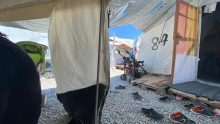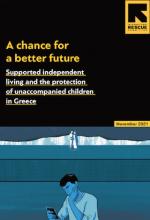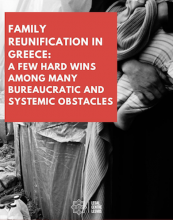Asylum

Over the summer, the Legal Centre Lesvos (LCL) continued to seek redress before the ECtHR for people forced to live in the Reception and Identification Centre (RIC) in Kara Tepe, Lesvos (also known as Mavrovouni RIC or Moria 2.0), despite their critical state of health.
Between July and September, LCL submitted 9 applications for interim measures to the ECtHR requesting the urgent transfer of individuals and their families out of the Lesvos’ RIC into safer accommodation and their immediate access to urgently needed health care on mainland Greece.

Kos hosts the only pre-removal detention centre on the Eastern Aegean islands. Since January 2020, the Greek authorities have detained nearly every asylum seeker who has arrived on the island of Kos automatically upon arrival. This has historically included survivors of gender-based violence and torture, families with young children, elderly persons, LGBTQIA people, and people suffering from serious physical and mental health conditions. The automatic detention of asylum seekers is illegal under Greek, EU, and international human rights law, and yet the situation on Kos remains relatively unknown.

This report aims to highlight the importance of strengthening the multiple durable solutions available for unaccompanied children in Greece. These include family reunification for children with family elsewhere in Europe, relocation to other European countries, enhanced foster care support for younger children, and the provision of supported independent living (SIL) options for children over 16 years of age.

The fundamental right to a private and family life is recognised under international and European law. In practice, however, migrants’ enjoyment of their right to family life is often denied or obstructed by flaws in registration and asylum procedures, authorities’ failures to ensure the timely identification, substantiation and submission of family reunification requests, and, most critically, by the continued and knowing bad faith of other EU Member States in their implementation of the Dublin Regulation, through ungrounded or unfair rejections of family reunification requests coming from Greece.
